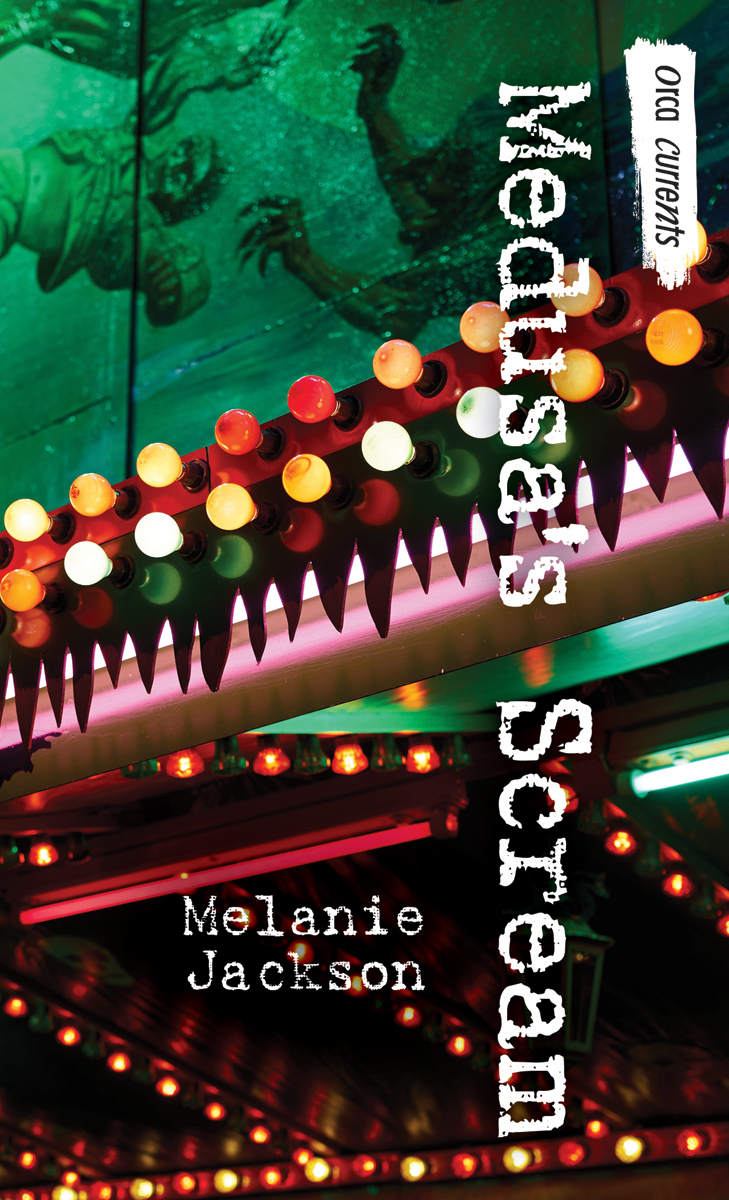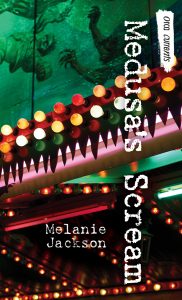What planning and research did you do for you book?
I had four subjects to research. In no order of importance, these were: savory pies; the myth of Medusa; Bonnie Prince Charlie and his 1745 rebellion; the Gold Rush and in particular the 1858 Fraser Valley, B.C. Gold Rush. Medusa and Charlie already lived in my brain––the dashing prince a far comelier presence than the snaky-haired monster, needless to say––as I’ve loved reading both British history and ancient Roman and Greek myths since I was a girl. So I didn’t have to do that much research on those two topics. I knew, for example, that the silver shield Charlie carried into battle had an angry Medusa emblazoned on it. Like my protagonist, Chase, I like savory pies much more than sweet ones. I did some reading up on how to cook them, but mostly for research I talked with Chef Enrick, who sells his scrumptious pies at Vancouver farmers’ markets. And came away from him as usual with a pie; a tourtière on that day, as I recall. Chase tries cooking a tourtière in the story, without too much success. The Gold Rush I knew about, but only superficially. I read up about that online and in the library. Many of those who came west seeking gold were Scottish. I was able to tie in the myth of Medusa to the miner of the story, whose Scottish ancestors (like mine, the romantic fools) fought with Charlie. In memory of them and of the prince’s shield, the miner of my story named his mine after Medusa. The thrill-ride train of present day in the story bears a replica of the shield on the front of the engine.
What’s the best piece of writing advice you’ve received?
I always recall Edmund Spenser in The Faerie Queene: “Be bold, be bold, but not too bold.” Similarly, when I was a young woman freelance-writing for Vancouver magazine, then-editor Malcolm Parry advised me to take risks with my writing, but risks always with discipline. He’d say, “Go to the edge of your cliff but stop at the very edge, sit down and hug your knees to your chin.” I’ve never forgotten that. I love it.
What’s in your to-be-read pile? What makes you want to read those books?
Behave by Robert Sapolsky: an examination of why we do what we do and what our behavior is rooted in: our personal past, society and human evolution. The Revolution of Robert Kennedy: From Power to Protest after JFK, by John R. Bohrer: how the tragedy of his brother’s assassination transformed Robert Kennedy from a shrewd, ends-focused and not especially likable political strategist to a compassionate—but still pragmatic—social and political visionary.
Do you listen to audio books? What do you listen to?
As someone who takes long walks every day, audio books are a natural for me, a daily dose of learning and enrichment. I like listening to history and biographies, as well as thrillers. At a surprising moment or particularly trenchant insight in any of these genres, I sometimes exclaim out loud, earning surprised looks if I happen to be in an urban area. The read word is so vivid, so powerful, so evocative.
What book do you think you learned the most from reading or admire most?
I don’t really have a learned-from-most book, so this answer will change according to the time I’m asked it. Right now, my instant reaction is to cite Kipling’s story Rikki-Tikki-Tavi, about the mongoose who takes on two cobras. The story scares and inspires me to this day. Rikki is brave and clever, but he never stops singing and dancing for long. Not a bad way to take on life’s challenges.
What’s your favorite movie that was adapted from a book or short story?
The Loneliness of the Long-Distance Runner, 1962, from the Alan Sillitoe short story of the same name. I think this is a rare example of a movie improving on the original story. Through sometimes poignant, sometimes ironic music and noir-ish black-and-white cinematography, the movie goes beyond the obvious themes of class inequity in Britain to that of freedom of the spirit, no matter the pressures or advantages of p
laying by the rules.
Do you listen to music when you write? Why or why not?
Classic King FM 98.1, the Evergreen channel. Lovely music that helps my thoughts flow creatively while floating any cares or worries out the window.
Do you have a quote you like to live by?
Not only one. But maybe I’ll go with Eliot’s “What might have been and what has been/Point to one end, which is always present.”
What’s your favorite city you’ve lived in! Tell us why!
I lived in Paris for two months. It really is the city of light, a pale, exquisite, gleaming light that comes off the buildings and the pavement, the trees and river. I’ve never seen anything like it. Plus, it’s…Paris. The history, the culture, come into your very pores.
Medusa’s Scream is available now!
Scottish-born and mystery-minded, Melanie Jackson is the author of several Orca Currents novels and the Dinah Galloway Mystery Series. She also works as a Vancouver-based business/advertising writer and editor. Melanie enjoys hiking, piano, English/Scottish history—and learning from young readers. Honours include being named a 2018 TD Canadian Children’s Book Centre author; and receiving a University of Toronto Alumni Arbor Award. For more information, visit www.melaniejacksonblog.wordpress.com.



